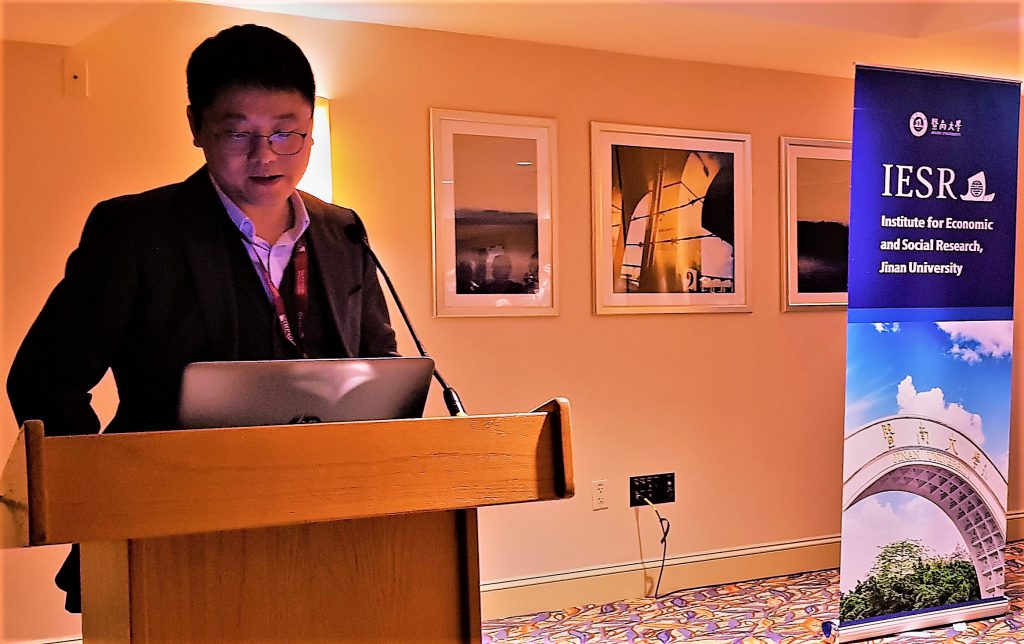On January 3, the Kuznets Prize of the Journal of Population Economics was given to Gautam Hazarika, Chandan Kumar Jha, and Sudipta Sarangi at the IESR/Jinan University reception with Jim Heckman, Klaus F. Zimmermann and Shuaizhang Feng:
Shuaizhang Feng (Dean of IESR) introduced IESR and gave a warm welcome to the participants. Klaus F. Zimmermann introduced the Kuznets Prize, the award article and the authors. Jim Heckman congratulated the authors and the responsible organizations for the success and presented the award certificates. Chandan Kumar Jha and Sudipta Sarangi took the honors for all three authors and received the deserved applause of the large audience. Greetings went to author Gautam Hazarika and the responsible editor of the awarded article, Alessandro Cigno, who both could not be in San Diego.
Since 2019, Shuaizhang Feng is also an Editor of the Journal of Population Economics, Jim Heckman has been an Associate Editor for decades, while Klaus F. Zimmermann is the Founder and Editor-in-Chief. Heckman and Zimmermann supported IESR from the beginning. GLO is proud to note that all authors have joined the organization as Fellows, as Cigno, Feng and Heckman.

During the reception: Heckman & Zimmermann 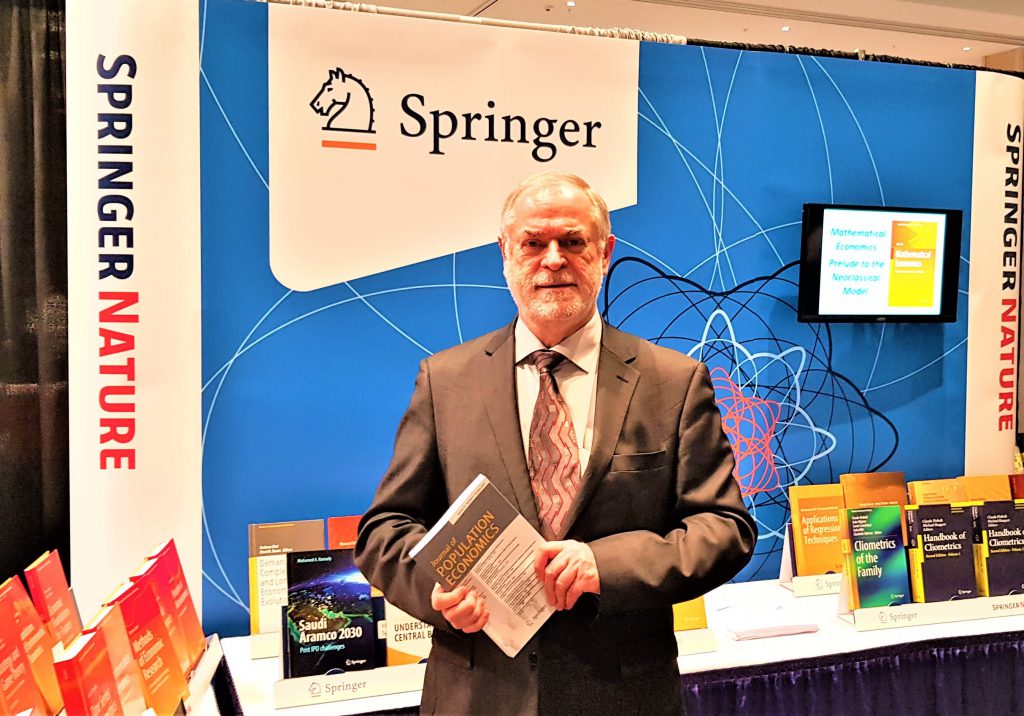
At the Springer Nature ASSA Booth
Award and event details.
Prize paper: Ancestral ecological endowments and missing women
(Please click title for FREE READ LINK) Published in the Journal of Population Economics (2019), 32(4), pp. 1101-1123. The annual prize honors the best article published in the Journal of Population Economics.
1. Paper examines the relationship between ecological endowments in antiquity and contemporary female to male sex ratios in the population.
2. It finds robust evidence that there are proportionately more missing women in countries whose ancestral ecological endowments were poorer.
3. Gender inequality is larger, that is, the female to male sex ratio lower, in regions whose peoples’ ancestors experienced greater resource stress captured by historical crop yields measures.
4. A conclusion is that ecological resource scarcity led to gender inequality in the intra-household allocation of resources in the past and that the associated behaviors have been culturally transmitted to the present as norms.

Cigno 
Sarangi 
Jha 
Hazarika
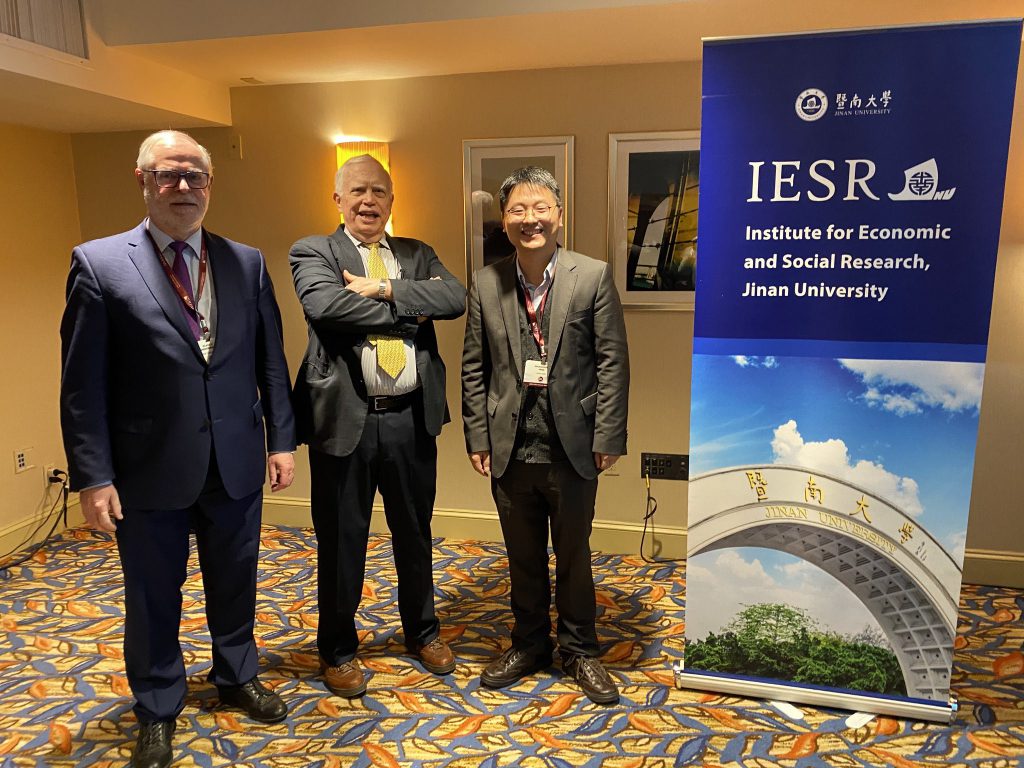
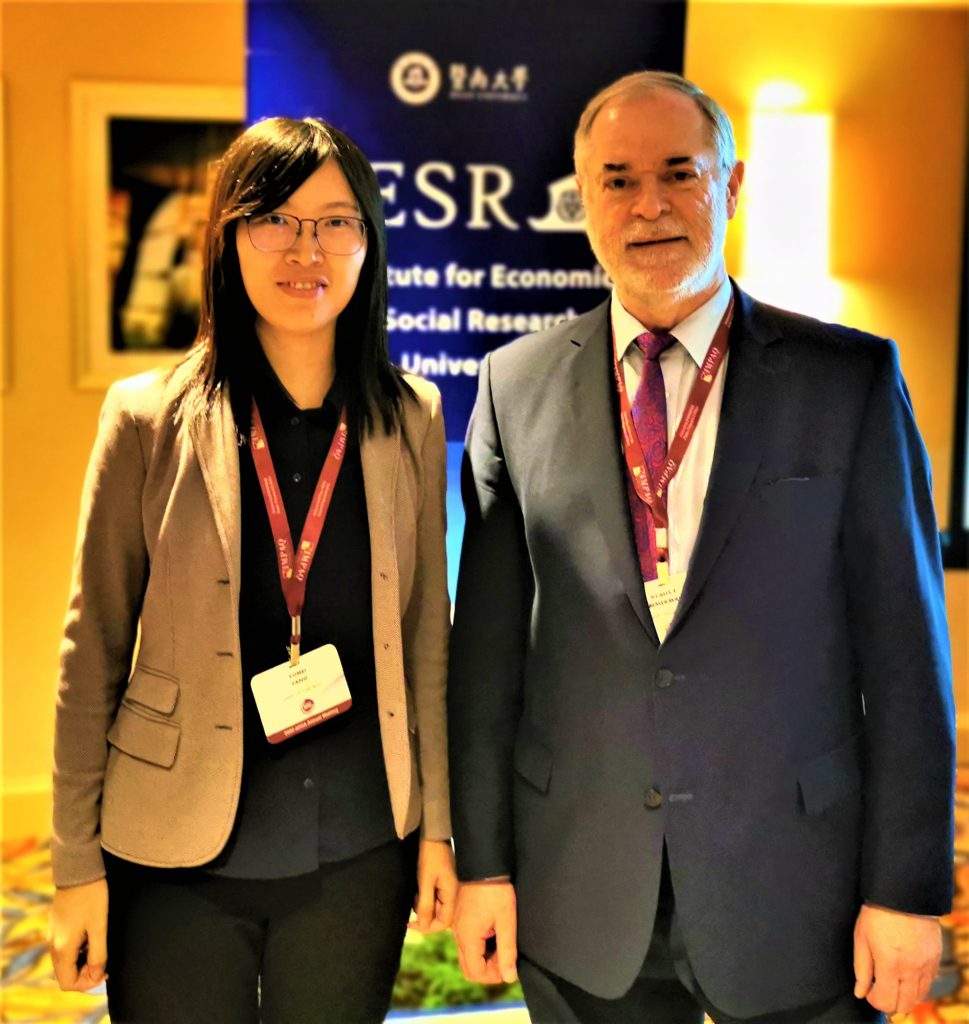
With GLO Fellow Yumei Yang 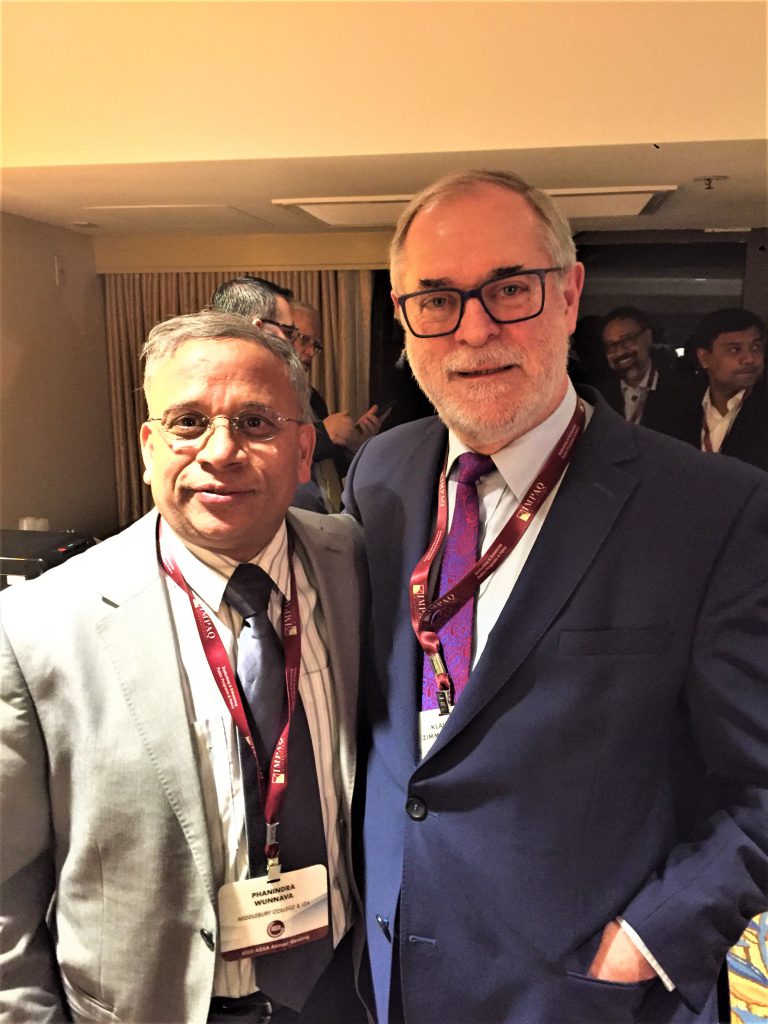
With GLO Fellow Phani Wunnava
Ends;

